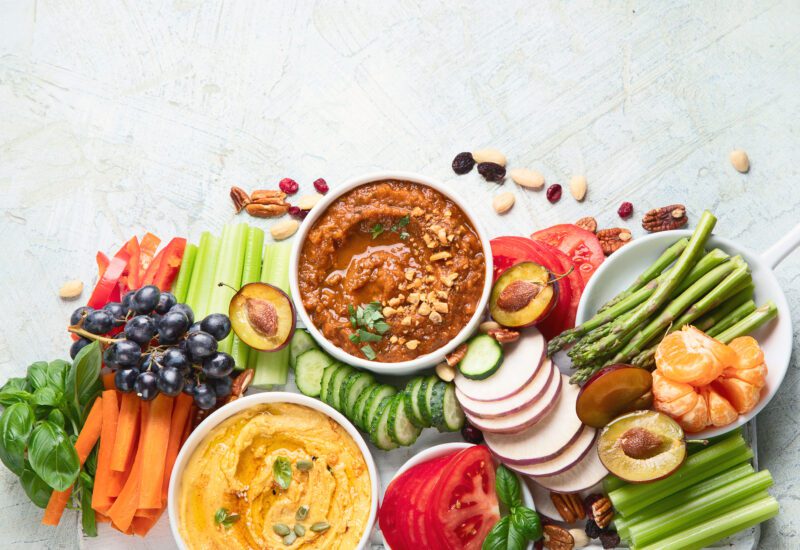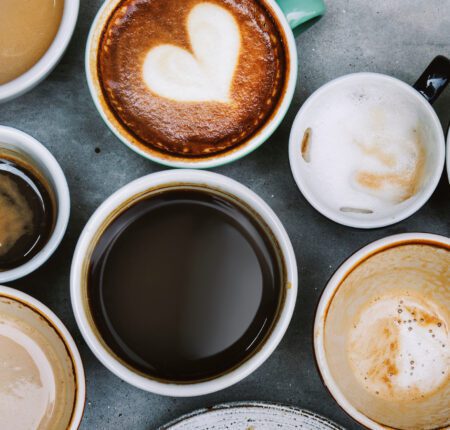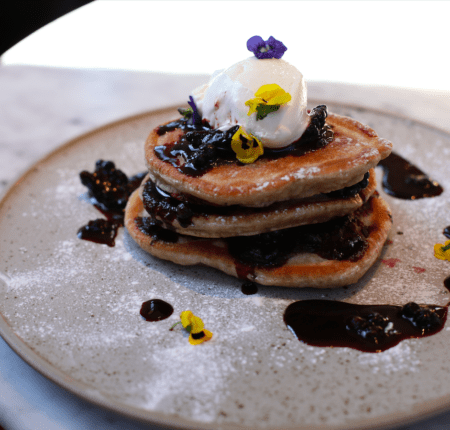For years, I’ve experienced the awful side effects of periods, and my years as a ballerina were interrupted constantly with days off when I was unable to exercise, or even get out of bed, due to menstrual cramps. It would often leave me feeling helpless, and like there was nothing I could do to ease the pain. If you’re like me and you struggle to deal with the side effects, you may have unfortunately experienced some of the following common symptoms:
- Abdominal cramps
- Headaches
- Bloating
- Nausea
- Fatigue
- Mood swings
- Fluid retention
- Diarrhoea
Over the years, I’ve spoken to many nutritionists who have taught me that what you eat has an impact on how you feel during your period. Whether it’s adding new things to your diet or removing unhealthy and “empty” foods with little to no nutritional value, making small dietary changes can help you feel better throughout your menstruation cycle. Here, we’ll go through why your diet is so important to your menstrual wellbeing, and how it can improve the way you deal with your period.
Why a balanced diet is important?
Eating a balanced diet helps you maintain correct bodily functions, which includes producing the right levels of hormones, helping to regulate some of the uncomfortable symptoms of menstruation. Not getting the right micro and macronutrients can alter the hormone levels in your body, which has a direct impact on your period. Tryptophan, for example, is an essential amino acid naturally found in foods like spinach, oats, and soy, which is vital for hormone production and increased serotonin levels.
While your dietary needs remain the same during your period, it’s important to note that, if you have a particularly heavy flow, it’s a good idea to up your iron intake in order to compensate for any iron lost over the week.
It’s also likely that you’ll experience cravings for specific foods for a few days before or during your period, the most common being sweet and salty foods. But the problem with this is the risk of over-indulging, which could hugely increase your calorie intake, while also creating a nutritionally unbalanced diet. You may also find that the excess sodium in the foods you crave worsens another common symptom of menstruation — fluid retention. As such, it’s important to eat the right foods, even when you are experiencing cravings.
Foods to eat on your period
Omega-3 Fatty Acids
Omega-3 fatty acids work to reduce inflammation in the body and, in turn, can help alleviate any period pain you may experience. While the most popular source of omega-3 fatty acids is fish, this isn’t the only way to introduce it to your diet. While you may choose to take supplements to get the right amount of omega-3, it’s easy to get a good dose through your diet alone. Some of the best sources of omega-3 fatty acids are:
- Flaxseed and flaxseed oil
- Chia seeds
- Walnuts
- Seaweed and algae
- Soybean
- Hemp seeds
This chia pudding is ideal for a good dose of omega-3, and can be made ahead of time for either dessert or as a breakfast parfait. I like to serve mine with plenty of mixed berries — a perfect summertime treat.
Dark chocolate
Cocoa can actually be one of your best friends during your period — you just need to ensure you’re eating the right type of chocolate. The higher the percentage of cocoa the chocolate contains, the better, as it contains more of the actual cocoa beans than milk chocolate. Dark chocolate also contains potassium, which is key to stopping your body and muscles from retaining water, which can leave you feeling bloated. Potassium is also key to muscle function, which is what can help ease any pain from cramps. Just eating a couple of ounces of dark chocolate every day can be enough to relieve bloating and any further menstrual pain and cramps you might experience.
Dark chocolate also contains vitamins A, B1, C, D, and E, as well as the antioxidants phenol and flavonoids, calcium, iron, magnesium, and omegas 3 and 6. Foods that are high in antioxidants, vitamins, and minerals can work to balance hormonal changes within your body, lessening any nasty effects of your cycle. For a delicious and indulgent chocolate fix, whip up a batch of these double zucchini muffins, which are wonderfully moist and decadent, with just the right amount of sweetness.
Whole grains
Cravings for carb-heavy foods is a common symptom of PMS amongst many, thanks to the natural dip in serotonin, which is the hormone responsible for feeling good. However, these cravings well may have you reaching for cookies, cakes, or refined carbohydrates. Instead, you should look at fixing your craving with complex carbs, like whole grains, which gradually increases your blood sugar, and stops any sugar cravings. Whole grains are also a great source of B vitamins, thiamin, riboflavin, and niacin, which are all essential to regulating metabolism and providing a steady stream of energy. On top of this, the amount of fibre in whole grains means you’ll feel fuller for longer, without feelings of bloat.
For a meal packed with whole grains, fresh produce, and healthy fats, try out this roasted pumpkin and red quinoa salad, complete with a mint tahini dressing, courtesy of my friend Nealy Fisher. This salad is perfect for lunch or dinner, and can even be served as a side to another dish. Packed with protein and whole foods, it’s filling, delicious, and nutritious.
Healthy fats
Your body needs fats to function properly, so it’s important to maintain a healthy level during your period. Essential, healthy fats contain anti-inflammatory effects to fight against bloat and cramps. These fats are also crucial for your brain and can work to fight against mood swings. Good sources of healthy fats include nuts, seeds, avocados, and olive oil (and other vegetable-based oils).
One of the easiest ways to introduce these healthy fats is by incorporating nut butter in your meals, or by cooking with vegetable oils. These oils may even contain phytoestrogens which can work to balance out your hormones, relieving any symptoms of menstruation. One of my favourite recipes using healthy fats is a broccoli and avocado salad, served with almond butter and lime dressing. The healthy fats come from the almond butter, avocado, and pistachio nuts, and you can alter the quantities depending on how much you’d like.
Water
Staying well-hydrated is key to good health, and can ease any headaches, feelings of bloat, and even help with water retention. You should be drinking at least two litres of water every day but, if this is too difficult, you can drink herbal teas instead, for added flavour. Chamomile tea is especially good for helping you relax when suffering from severe cramps. Alternatively, for anti-inflammatory effects, try a cup of ginger tea by steeping a few shavings of raw ginger in hot water, or a cup of fennel tea to ease any feelings of bloat.
Foods to avoid on your period
Caffeine
Over the course of your period, you’ll lose more iron than usual, which can leave you feeling lethargic. However, while you might reach for the coffee to perk you up, it’s best to avoid it altogether. Caffeine causes the constriction of blood vessels, including the ones in your uterus, which can lead to even more severe cramps. Caffeine can also raise your heart rate, which can disrupt your sleeping pattern, and only cause you to feel even more tired during the day, thanks to your slightly depleted iron levels.
High salt foods
Just before you start your period, your body starts holding onto sodium and fluid, which can make you feel bloated. However, you might also be craving highly salted foods, which will only make this water retention worse. Counter this by drinking extra water, especially if you simply can’t ignore those salty cravings. We’d also recommend adding natural diuretics to your diet, like asparagus, parsley, beetroot, lettuce, and ginger, or opt for low sodium alternatives to your favourite foods.
Sugary foods
Eating sugar is fine, in moderation, even when you’re not on your period. However, over-indulging can cause a sugar high which inevitably leads to a sugar crash, leaving you feeling lethargic. This isn’t ideal, particularly if your period already makes you feel tired, and can even cause irritability and anxiety, worsening any mood swings you might experience. Simply keeping an eye on your sugar intake can work to regulate your mood, even for the most severe PMS sufferers.
Processed food
Any kind of overly processed foods should be avoided while you’re on your period, as they contain too many chemicals and sugars for your body to metabolise. These can even wreak havoc on your hormones, shifting levels of estrogen and testosterone, and decreasing the amount of serotonin. Instead, you should opt for whole, fresh foods to nourish your body.







